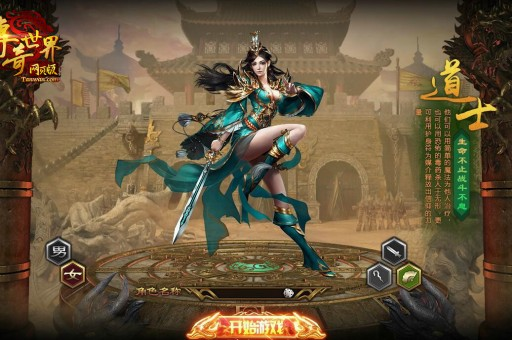Zuckerberg Bets $14.3 Billion on Scale AI's Alexandr Wang to Rescue Meta's A...
 摘要:
Credit: CFPAsianFin -- Meta Platforms Inc. is making a high-...
摘要:
Credit: CFPAsianFin -- Meta Platforms Inc. is making a high-... Credit: CFP
AsianFin -- Meta Platforms Inc. is making a high-stakes play to catch up in the artificial intelligence arms race—by writing a $14.3 billion check to a 28-year-old Chinese-American data entrepreneur.
Mark Zuckerberg’s company has acquired a 49% stake in Scale AI, a low-profile but mission-critical data infrastructure firm founded by Alexandr Wang, who dropped out of MIT at 18 and built a business powering the training pipelines for OpenAI, Tesla, Microsoft—and now Meta.
The deal, first reported by New Quality Dynamics, underscores Meta’s growing urgency to close the gap with rivals like OpenAI and Google, which have pulled ahead in commercializing cutting-edge large language models.
While Meta’s open-source LLaMA series has gained traction among researchers, its next-generation LLaMA 4 remains delayed, internal development teams are under pressure, and data bottlenecks have slowed progress.
Rather than continue building in-house, Zuckerberg has opted to bring the “fuel supplier” for the AI era into Meta’s camp.
Scale AI’s value lies not in flashy algorithms but in the unglamorous backbone of AI development: massive-scale data labeling and curation. Wang’s company specializes in turning messy, unstructured data—text, images, video, audio—into clean, structured inputs for AI model training.
The service may sound like outsourced grunt work, but it’s foundational in the age of generative AI, where model performance is closely tied to the volume and quality of training data. Even a 1% margin of error in data labeling can significantly degrade model output.
Scale claims a 99.7% annotation accuracy rate, far exceeding the industry average of 85%. Its platform processes over 100 million data points daily across 217 languages and modalities. To achieve this, it commands a distributed workforce of over 100,000 annotators in countries including the Philippines, Kenya, India, and Venezuela.
Zuckerberg, who once tried to build a competing data team internally, now sees Scale as a lifeline. The Meta-Scale partnership is more than an outsourcing agreement—it gives Meta strategic control over its AI training data supply chain, enabling faster iteration of new models and freeing it from the inconsistencies of user-generated data on Facebook and Instagram.
Wang’s rise has been meteoric. The son of Chinese nuclear physicists, he taught himself advanced programming in high school and dropped out of MIT to pursue an idea sparked by a refrigerator camera prototype. Realizing that lack of structured data was a choke point for AI development, he launched Scale AI in 2016 through Y Combinator.
Initially dismissed as a “data janitor,” Wang steadily turned the company into a central player in AI infrastructure. By 2018, Scale was supplying OpenAI. In 2019, it took over Tesla’s FSD data labeling. The U.S. Department of Defense became a client in 2020. Today, Scale’s client list spans nearly every major AI company.
What makes Scale unique is its proprietary full-stack data operating system—an automated pipeline that collects, de-duplicates, annotates, classifies, and updates training data with minimal human input. That scale, efficiency, and precision are nearly impossible for competitors to replicate.
In 2021, the company reached a $7 billion valuation. Today, with Zuckerberg’s investment, it may quietly become one of the most powerful levers in the AI economy.
While Meta has made significant technical advances through the FAIR lab and the LLaMA models, execution has lagged. Its open-source approach has generated goodwill but limited commercial payoff. Meanwhile, internal tensions have surfaced amid delays, and competitors like OpenAI (with GPT-4o) and Google (with Gemini) are sprinting ahead.
By locking in Scale, Meta ensures a more consistent flow of training data, potentially accelerating LLaMA 4’s development. It also sends a message: in the AI race, data—more than models or hardware—is the strategic high ground.
But this alignment also creates new market tensions. Scale’s neutrality is now under scrutiny. Google is reportedly reviewing its partnership. OpenAI is boosting Scale’s competitor, Handshake. And other AI labs are scrambling to reassess their “data dependencies.”
With Meta’s backing, Wang has moved beyond the role of a behind-the-scenes supplier. He now controls a critical chokepoint in the AI development cycle and is shaping up to be a power player in his own right.
He’s promised to maintain independence and serve multiple clients. But as Meta tightens its grip, that balance will be tested.
Zuckerberg’s $14.3 billion bet is not just on a supplier—it’s on Wang’s vision of a “data operating system” that underpins the future of AI. Whether this partnership becomes Meta’s comeback story—or turns into a new rivalry—will depend on whether the quietest player in the room can now move the entire board.








